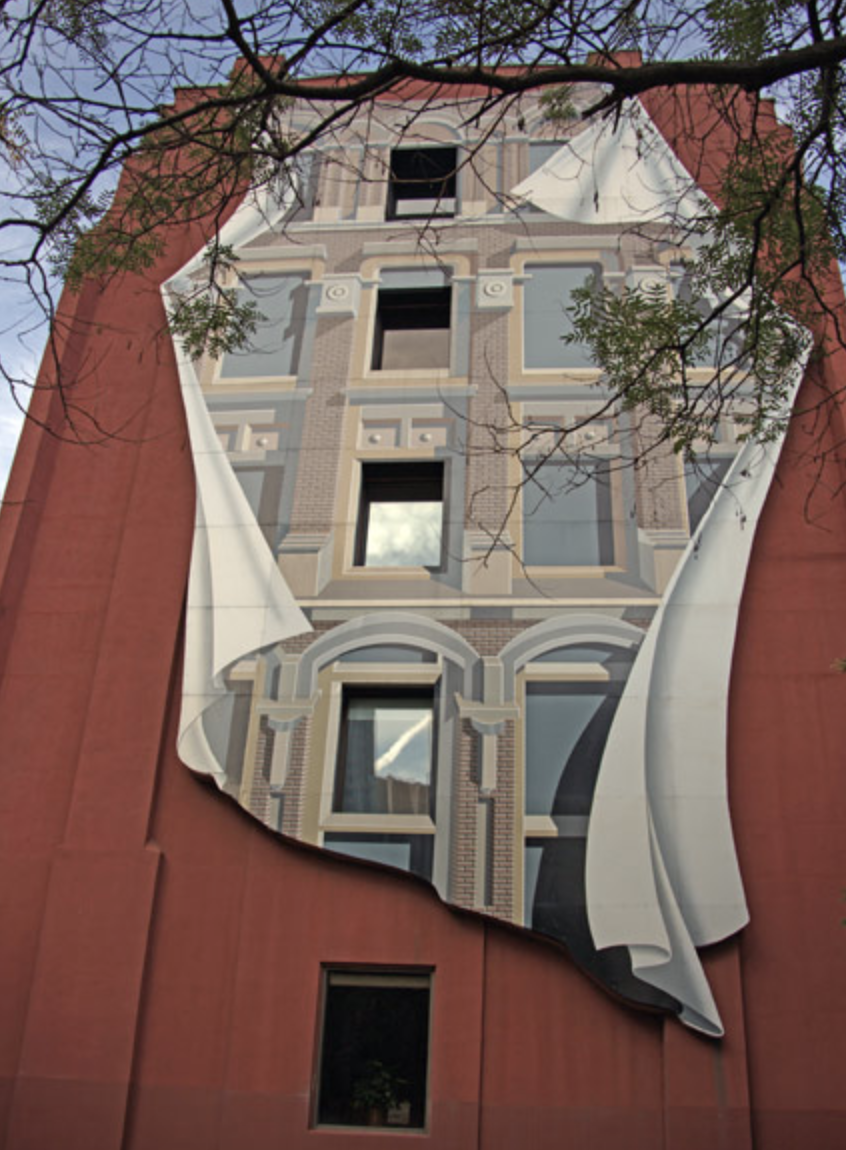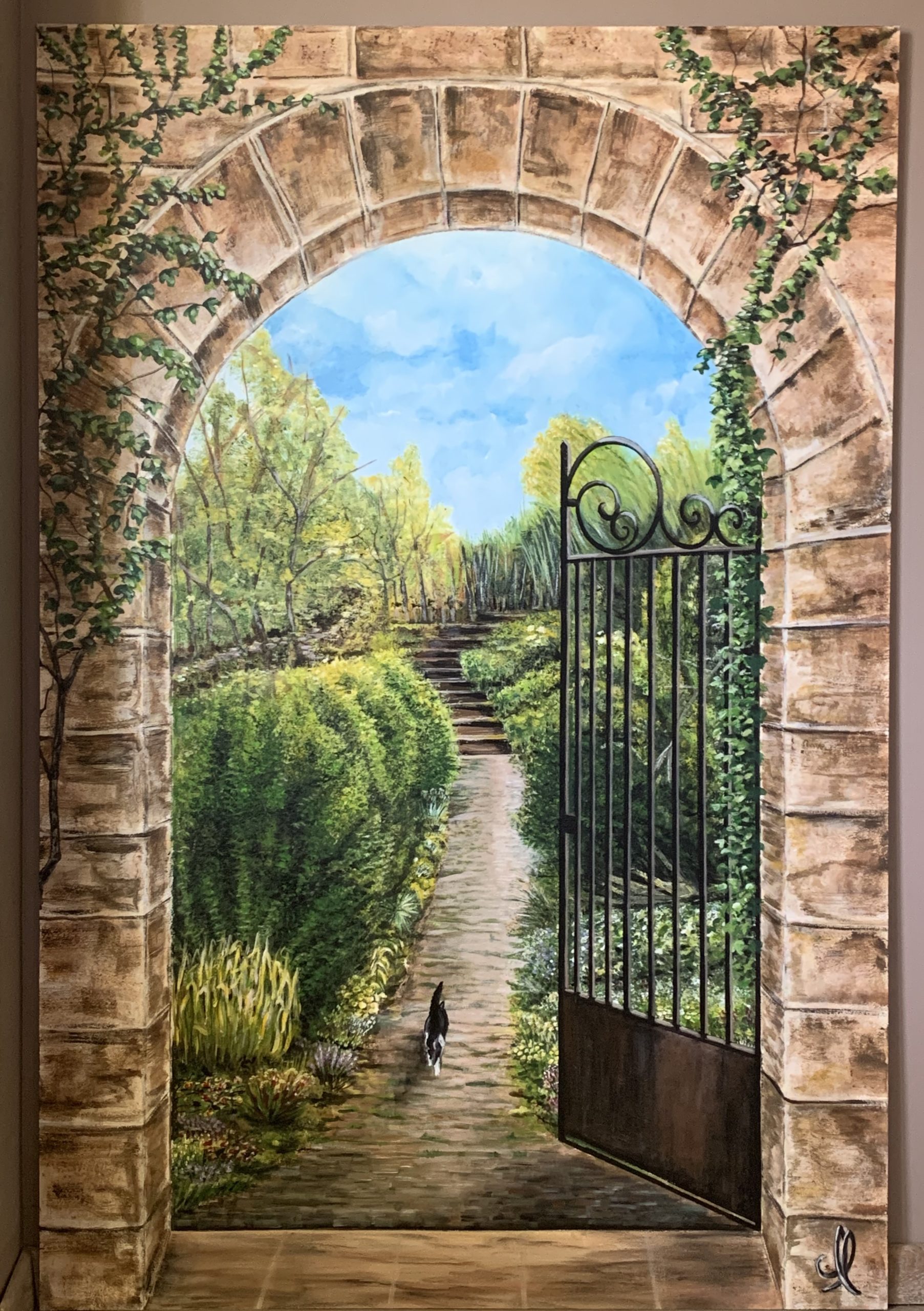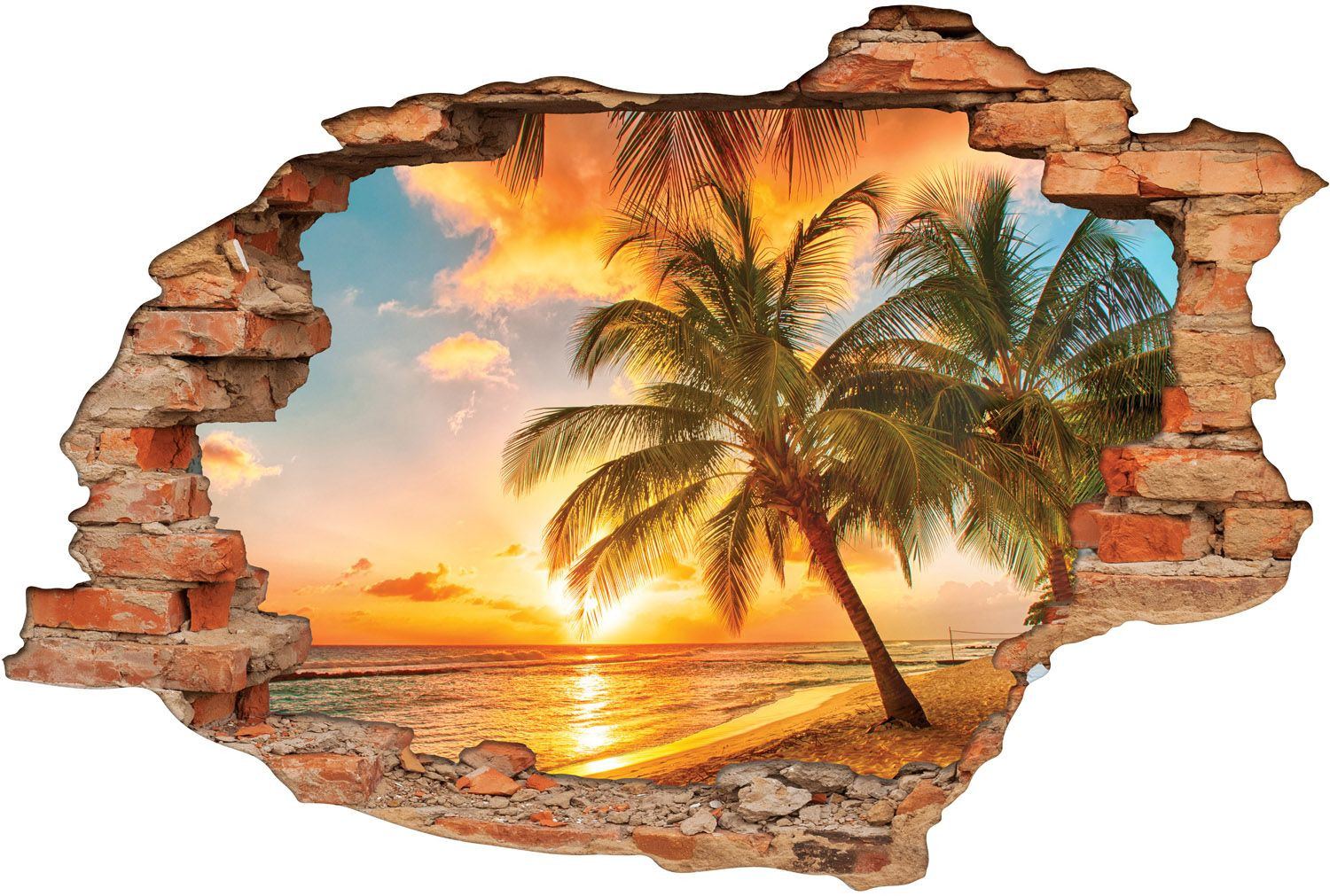
Trompe L Oil FileColonnade, trompe l'oeil mural by John Pugh.jpg
Without knowing, you have more than likely seen an example or two of trompe l'oeil in art. It is a term that encompasses many art forms in its meaning, ranging from architecture and paintings to sculptures. Coined by the French artist Louis-Léopold Boilly, the term means "to deceive the eye.". It is a technique in which the artist uses.

14 Trompe l'Oeil Examples That Will Blow Your Mind
01. Braga Last One's Sphynx A post shared by Braga last1 (@braga_last_one) A photo posted by on Tom Bragado Blanco, or Braga Last One, creates stunning trompe l'oeil illusions that push the boundaries of street art. He blends 3D painting and anamorphic illusions to create mind-blowing site-specific pieces that blend into their surroundings.

trompe l’oeil murals by Francebased street artist Mantra
Trompe l'Oeil, a French expression, translates in English to optical illusion. Trompe l'Oeil murals appear to be lifelike and three-dimensional, and are typically displayed on vertical surfaces, like the walls of a building. If you enjoy optical illusions, take a look at our favorite trompe l'Oeil examples to trick your mind. Trompe l'Oeil examples
loveisspeed....... Trompel'œil French for "deceive the eye" , which
Trompe-l'œil is an artistic term for the highly realistic optical illusion of three-dimensional space and objects on a two-dimensional surface. Trompe l'œil, which is most often associated with painting, tricks the viewer into perceiving painted objects or spaces as real. Forced perspective is a related illusion in architecture.

Trompe l’oeil Faux Finishes, Mural Art & Perspective Britannica
Lost Illusions: From Trompe l'Oeil to Cubism. John Haberle: Imitation, 1887, oil on canvas, 10 by 14 inches. Courtesy Metropolitan Museum of Art, New York. The inventors of Cubism, Georges.
14 Trompe l’Oeil Examples That Will Blow Your Mind Cristian A. De Nardo
Trompe l'oeil is intended to fool the eye into thinking something is really there, so the subject matter is limited to objects that could conceivably be on a wall. Playing cards, window scenes, and recognizable materials like wood and marble are common subjects. In photorealism, the subject could be anything.

‘Trompe L’Oeil,’ by Nancy Reisman The New York Times
French for "fool the eye," trompe l'oeil art creates the illusion of reality. Through skillful use of color, shading, and perspective, painted objects appear three-dimensional. Faux finishes like marbling and wood graining add to the trompe l'oeil effect.
14 Trompe l’Oeil Examples That Will Blow Your Mind Cristian A. De Nardo
Trompe l'oeil is an artistic method of creating a visual illusion that makes elements of the painting come to life in the eyes of the viewer. Trompe l'oeil is a French term that translates as deceiving the eye, which explains its essence. The earliest implementation of trompe l'oeil in art refers to ancient Greece and Rome.
surface fragments Trompe l'Oeil painting class
The provenance of Trompe l'Oeil of an Etching by Ferdinand Bol cannot be traced back before the 20th century, but since this work comes from an old Viennese family, it may have originated in that area. Franciscus Gijsbrechts, like other trompe l'oeil painters of the late 17th century, found his most enthusiastic clientele in courtly settings.

Trompe l’œil, fresques, panoramiques Décor Évasion Aline Morancho
1 What Is Trompe l'Oeil Art? 1.1 The History of Trompe l'Oeil Paintings 1.2 The Use of Trompe l'Oeil During the Renaissance 1.3 The Developing Theories from the 17th Century Onwards 1.4 Modern Trompe l'Oeil Artists 2 Famous Trompe l'Oeil Examples 2.1 Holy Trinity (1428) by Masaccio 2.2 Camera Degli Sposi (1474) by Andrea Mantegna

Des Trompes L'oeil 14 Trompe l'Oeil Examples That Will Blow Your Mind
Trompe l'oeil (French for "deceives the eye") is a type of optical illusion used to trick the eye into thinking that a flat surface, like a wall, is actually three-dimensional. This technique is often achieved through photorealistic painting, and careful use of perspective.

[Portfolio] Les plus incroyables trompel'oeil urbains
trompe l'oeil, (French: "deceive the eye") in painting, the representation of an object with such verisimilitude as to deceive the viewer concerning the material reality of the object. This idea appealed to the ancient Greeks who were newly emancipated from the conventional stylizations of earlier art.

Ces incroyables trompel’oeil en 3D vont vous faire perdre la tête
By Mari Griffith Published 30 November 2015 Liotard was a skilled portrait painter - but he also liked a joke, and was a key exponent of trompe l'oeil. Here's a quick introduction to this strange phenomenon in art history. Jean-Étienne Liotard enjoyed great renown as a portraitist.
14 Trompe l’Oeil Examples That Will Blow Your Mind Cristian A. De Nardo
Trompe-l'œil French for 'deceive the eye'; ˈɔɪtromp-LOYFrench: [tʁɔ̃p lœj]) is an artistic term for the highly realistic optical illusion of three-dimensional space and objects on a two-dimensional surface. Trompe l'œil, which is most often associated with painting, tricks the viewer into perceiving painted objects or spaces as real.

trompe l’oeil murals by Francebased street artist Mantra
But in the case of trompe l'oeil, the creation is meant to confuse. Meaning "deceives the eye" in French, trompe l'oeil is a highly realistic painting style that takes 2D surfaces and.
14 Trompe l’Oeil Examples That Will Blow Your Mind London SEO Services
3. Paint drapery on the walls. To tackle the opposite side of the room, Olsen brought in artist Agustin Hurtado. "I requested a white fabric campaign tent, held up by the red tridents from the.